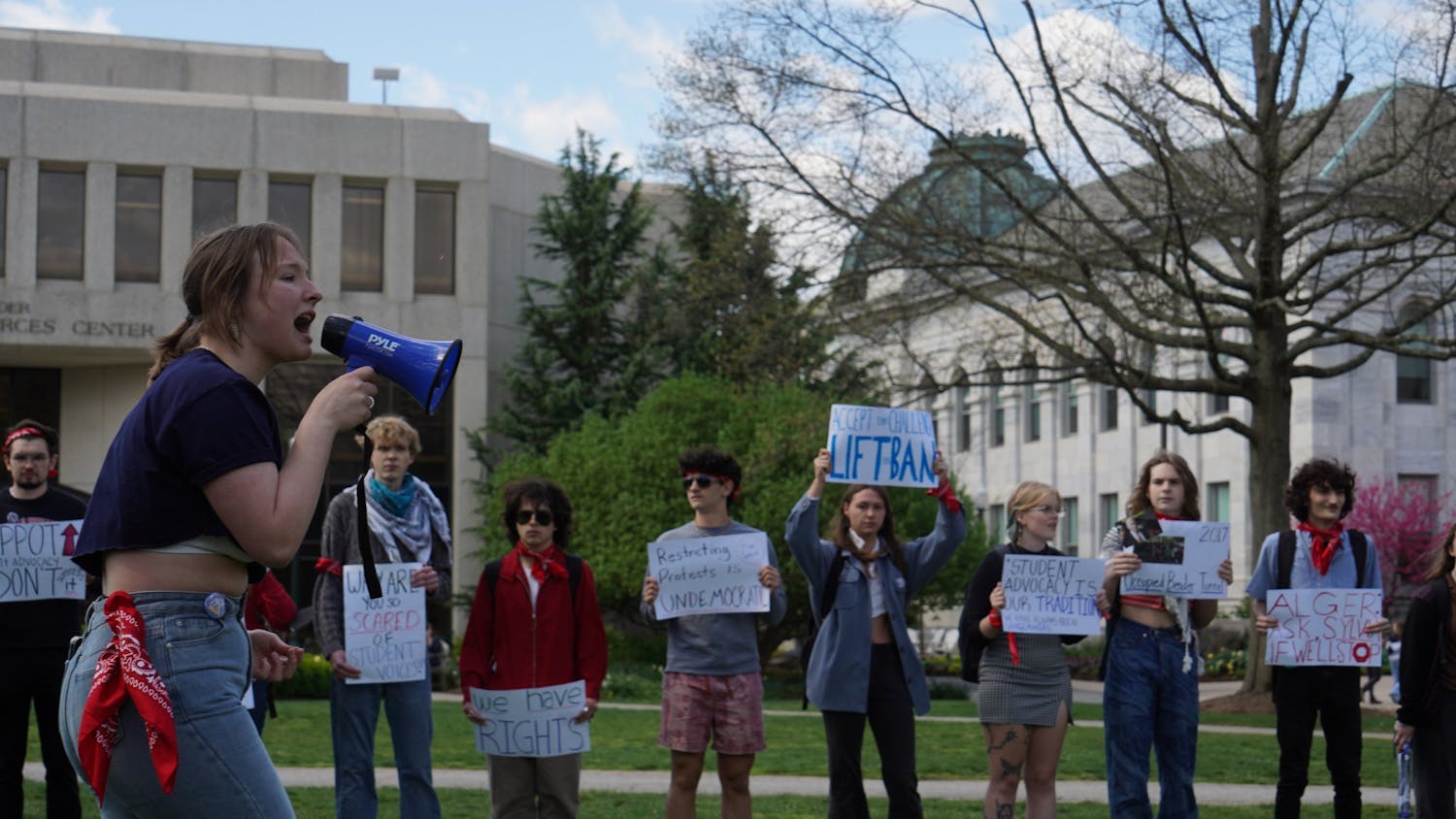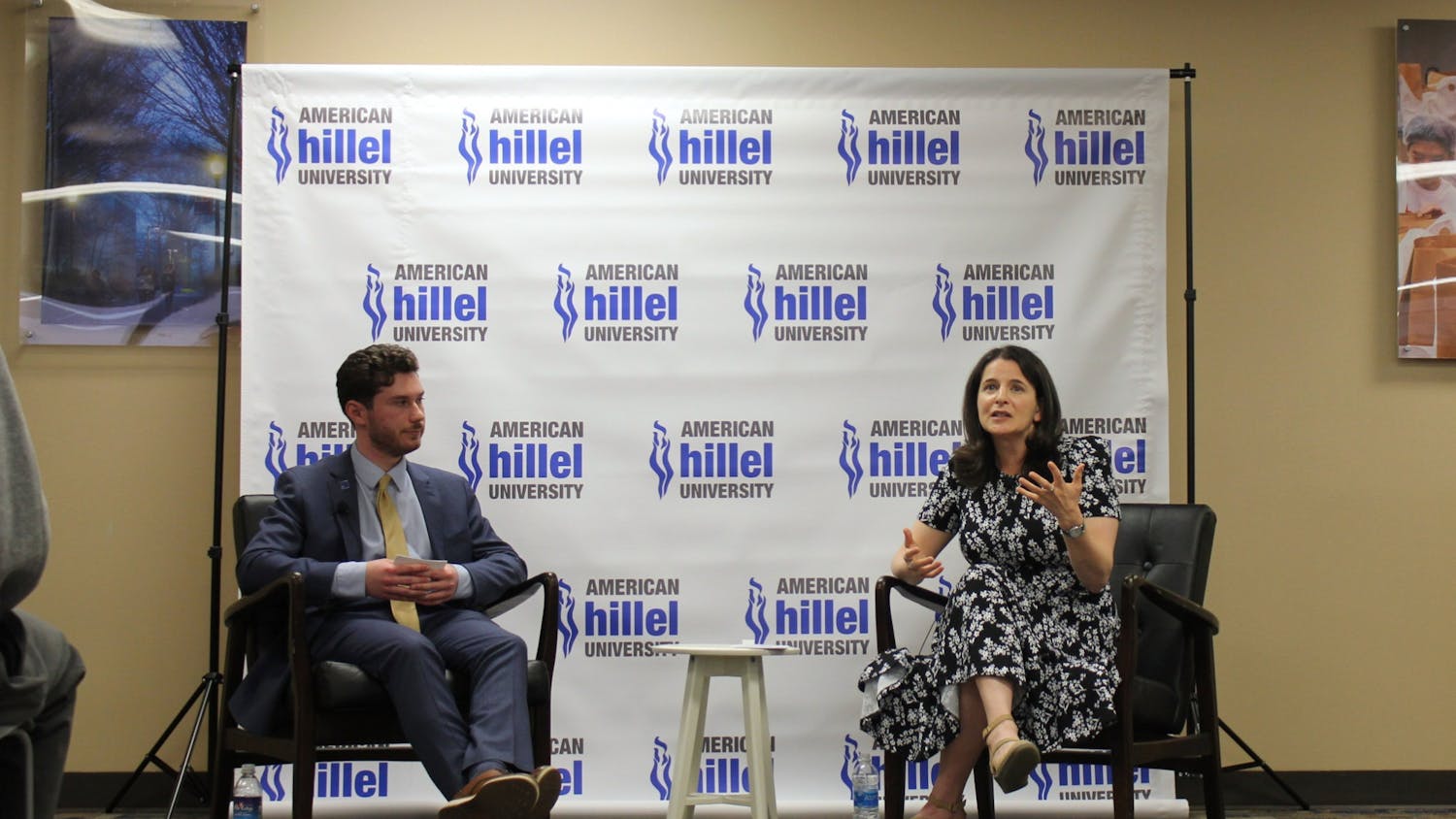After a year-long appeal process and a second tenure denial from the university president, former School of Communication assistant professor Carolyn Brown has filed a formal complaint against American University with the D.C. Office of Human Rights.
The complaint is the most recent development in Brown’s tenure case, which began in March 2017 when then-provost Scott Bass denied Brown’s tenure application due to what he said were “consistently unsatisfactory student evaluations.” Tenure is broadly defined as a protected status for professors that means they can't easily be fired.
Brown is one of several female professors denied tenure who claimed Bass discriminated against them, The Eagle reported in March. Bass stepped down from the provost position in June.
Mark Story, a university spokesperson, did not comment on the complaint or the tenure case.
Brown appealed her tenure denial to the Committee on Faculty Grievances in June 2017, stating that gender and racial discrimination influenced Bass’s decision because of her Latina identity. She also said Bass failed to follow tenure requirements listed in AU’s faculty manual, specifically the use of student evaluations, to decide her case.
“I feel like the University has used me when it needs a face of diversity, and then they throw me away when I went up for tenure,” Brown said at the time.
Brown’s appeal was then passed to University President Sylvia Burwell, who made the final decision to deny Brown tenure. In her memo to Brown, Burwell said Bass had adhered to all school and faculty guidelines when making his decision.
“I just felt like [Burwell] wanted to wash her hands of it,” Brown said. “[She] disregarded all the arguments I made on teaching evaluations and issues involving bias in my tenure case, not only regarding evaluations but also how I felt that I was discriminated against because of my advocacy on issues of race at AU.”
In her memo to Brown, Burwell stated that she did not find any deviation from AU’s faculty manual or SOC school guidelines in the tenure decision. Additionally, Burwell stated that evaluations of Brown’s teaching performance were not based on discrimination or bias.
“The Provost noted that all faculty are evaluated with SETs [student evaluations of teaching] and that women and minorities have been successfully evaluated with SETs,” Burwell wrote. “Consequently, the [Committee on Faculty Grievances] found no causation between your allegations of discrimination and retaliation and the decision to deny tenure.”
“I agree with this assessment and see no evidence that the decision was based on anything other than the Provost’s appropriate review of the legitimate factors contained within the file for action,” Burwell added.
Brown, now a senior lecturer at the University of North Texas, said she felt as though her case had been unfairly handled, especially during the appeals process.
In June 2017, Burwell sent Bass a memo asking him to reconsider his tenure decision in light of a letter of support from professor John Watson, the director of the journalism division at the time.
The letter was not included in the original decision. In the letter, Watson advocated for Brown’s effectiveness as a teacher through her recent improvement in teaching evaluations. Bass ultimately chose to uphold his previous decision.
“My grievance was against the provost, so to kick it to him as if he was going to change his mind doesn’t make any sense,” Brown said.
In a phone interview, Watson said he appreciated that Burwell “did make a secondary effort” but is ultimately disappointed with the University’s decision.
“This university for years has been making a push toward diversifying its student body and its faculty, and in this tenure decision we lose a highly qualified Latina who will be almost impossible to replace,” Watson said.
Watson is pessimistic that Brown’s formal complaint with the human rights office will reverse the provost’s decision. He is instead focusing on other tenure track professors who may find themselves in a similar situation to Brown’s.
“These tenure decisions are unavoidably subjective, but in making these decisions you have to look at the consequences,” Watson said. “The university has to say, ‘OK, we lost a very good professor. How do we get one just like her?’ and the chances are like a snowball in hell.”
Brown is also looking ahead and plans to use the complaint to pave the way for future professors.
“I just think it’s important to continue to fight this,” Brown said. “[AU] used me to their benefit and then when I went up for tenure, they threw me away for a ridiculous reason. I feel like it’s important to fight these things for the people who come after me.”
Editor’s note: John Watson serves as The Eagle’s faculty adviser. He was not involved in the writing or editing of this story.





